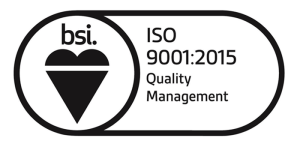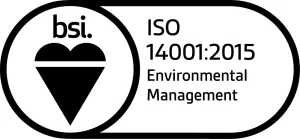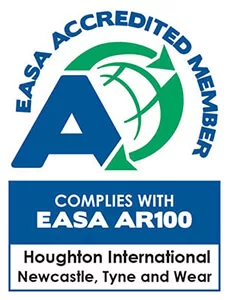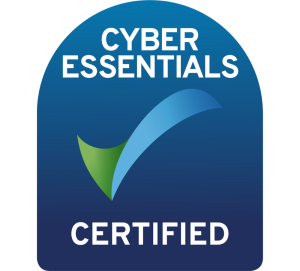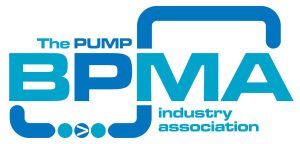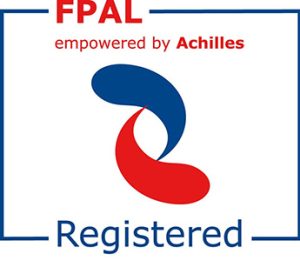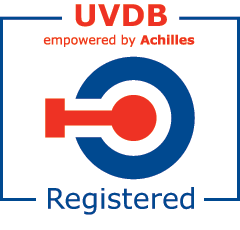We’re delighted that you’re considering an apprenticeship with Houghton International. Our apprenticeship scheme has been widely recognised by organisations including NEPIC, the AEMT, and Make UK, so you can be confident in the quality of training and development you will receive.
We know interviews can be intimidating, especially if you don’t know what to expect. Doing a bit of research and preparation can help calm your nerves and increase your chance of success. Read on for our top tips for your apprenticeship application process:
1. Research the company
Your journey to a successful interview starts before you even step foot in the interview room. Planning and preparing is the key to proving to the interviewer that you are the best fit for the role.
Research Houghton International and the role. Have a look on our website and make sure you read through the role specification thoroughly. To see what an apprenticeship at Houghton International is like, have a look at our apprenticeships page. Tailor your answers to the role to show the interviewer that you are interested in the position and informed about the company.
2. Plan your route and outfit
Plan your travel route in advance to avoid extra stress on the day. Our address and contact details can be found here. A dry run before the day of your interview can help with your timings and stop you from getting lost. What to wear to an interview can also be the cause of a last-minute panic. Wearing professional clothing will make a good impression and show you’re taking the interview seriously. Avoid trainers, jogging bottoms, and jeans.
3. Prepare for the questions
It’s useful to practice common interview questions with a friend, family member or teacher. Some common apprenticeship interview questions include:
- “Why do you think you will be a good fit for this role?”
- “Tell me a time when you have worked well in a team.”
- “Why do you feel an apprenticeship is the right option for you?”
It might seem obvious, but it is important to be able to explain why you want to go down the apprenticeship route. The interviewers are looking for enthusiasm, ambition, and a willingness to learn. If you feel like preparing some notes would help you, feel free to bring them along; the interviewer wants to get the best out of you, just like you do.
You should also be prepared to be asked some simple engineering questions. Try not to be too worried about this. The interviewer isn’t expecting a perfect answer, they just want to know if you have any background knowledge from school. You could, for example, be asked to explain the basic theory of an electric motor. BBC Bitesize can help you brush up on your knowledge.
Don’t forget, it isn’t just you who is being interviewed, you’re also testing the company to see if you think the company and role is right for you. A common practice in job interviews is for the interviewer to ask if you have any questions for them. You can use this to show interest in the role as well as to learn more about it to decide if it is right for you. Asking for more details on the training scheme, what the company culture is like and whether there will be opportunities for progression are all good questions.
4. The interview
Accept the fact that you’re going to feel nervous. Most people feel nervous for a job interview even if they’ve done hundreds of them. Feeling like this isn’t necessarily a bad thing. In fact, it probably means you want the role. Despite the nerves, it’s important to be friendly and professional; make sure you greet the interviewer and shake their hand. Remember that the interviewer wants you to succeed.
Aim to arrive around 10-15 minutes early for your interview, this gives you time to calm your nerves, it also shows the interviewer that you are punctual.
If you are offered a glass of water, say yes! You can take a sip of water to collect your thoughts before answering a question and it will be helpful after you’ve been talking for a while. If you aren’t sure on a question, don’t hesitate to ask the interviewer to repeat or reword the question.
When answering the questions, it’s often helpful to use the STAR technique.
Situation: Describe the situation
Task: Explain what you needed to do and the goal
Action: Give the details of the actions you took
Result: Tell the interviewer what the result was
The STAR technique is a popular structure for answering interview questions as it will help you stay on track and provide all the details the interviewer is interested in. Show the interviewer that you are receptive, interested, and enthusiastic.
5. After the interview
Feel proud of yourself! Interviews are stressful and doing one is something to celebrate regardless of the outcome. After the interview, if you remember something you wished you had asked or mentioned, please feel free to send an email. If you find out you have, unfortunately, been unsuccessful, remember to ask for feedback from the interviewer; feedback allows you to learn where you can improve so you might be successful next time.



